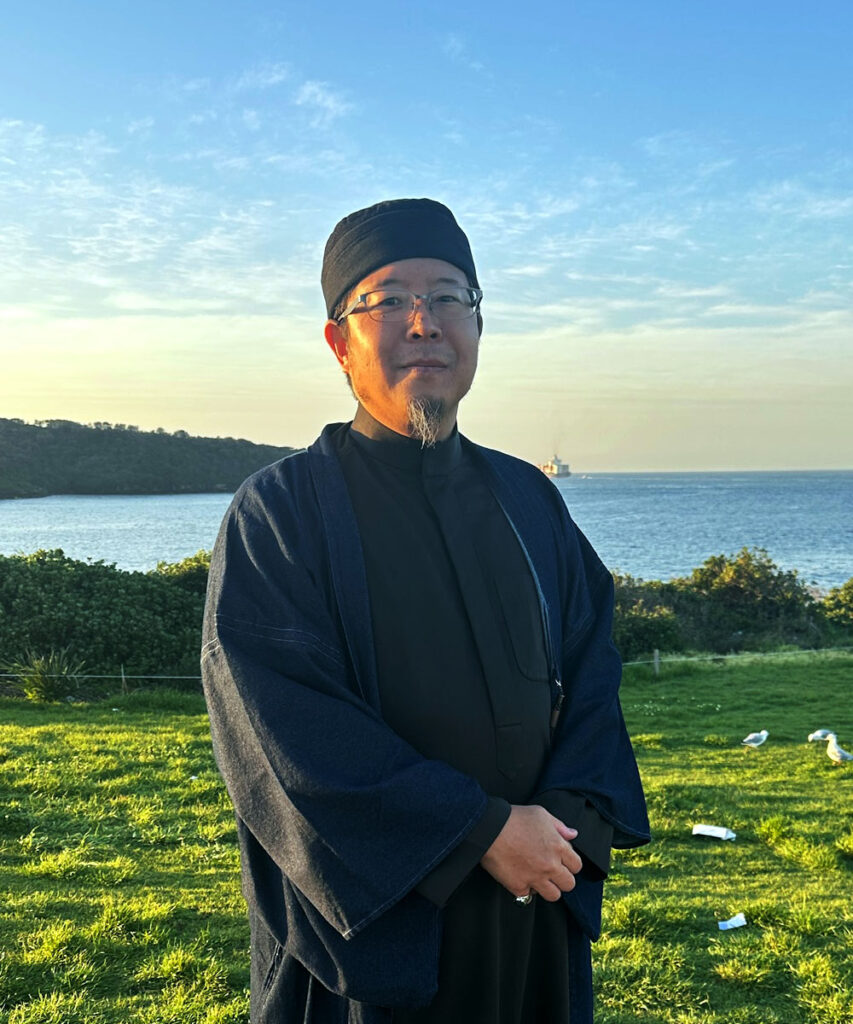Shaykh Ahmad Maeno, also known as Ahmad Naoki Maeno, is a prominent Japanese scholar and imam whose life and work have become a bridge between Islamic tradition and Japanese culture. Born in Japan in 1975, he grew up in a predominantly non-Muslim environment and first encountered Islam as a teenager. His journey to faith began during an exchange experience in Melbourne, Australia, where his interactions with a Muslim family left a lasting impression and prompted him to question his own understanding of life and purpose. At the age of eighteen, he embraced Islam — a decision that would shape the course of his life and career.
After returning to Japan, Shaykh Maeno pursued Arabic and Area Studies at Osaka University of Foreign Studies (now part of Osaka University), developing a deep appreciation for the Arabic language and Islamic civilisation. His search for deeper knowledge led him to Damascus, Syria, where he studied at the renowned Fath Islamic Institute in the Department of Shariah. Immersed in the traditional environment of Islamic learning, he gained a solid foundation in theology, jurisprudence, and Arabic, later specialising in creed (aqeedah) and comparative religion. Fluent in Arabic and English, he has since dedicated himself to making Islamic †teachings accessible to Japanese audiences in a language and context they can relate to.
Today, Shaykh Ahmad Maeno serves as the Imam of the Japan Islamic Cultural Exchange Center (Gotanda Masjid) in Tokyo. He also plays an active role as Secretary-General of the Japan-Saudi Arabia Society and the Japan-Kuwait Society, working to strengthen Japan’s connections with the broader Muslim world. Through his lectures, classes, and community initiatives, he has become a leading voice for Islam in Japan — guiding both Muslims and non-Muslims with a message grounded in sincerity, humility, and respect.
His vision focuses on nurturing a confident new generation of Japanese Muslims, equipping them with strong religious foundations and the linguistic and cultural fluency needed to engage with both Japanese society and the global ummah. For Shaykh Maeno, da‘wah in Japan must be thoughtful and culturally sensitive — rooted not only in words but also in character, sincerity, and example. As one of the few native Japanese scholars with classical Islamic training, his work represents a unique synthesis of Japanese sensibility and Islamic scholarship. In a society where Muslims remain a small minority, Shaykh Ahmad Maeno stands as a vital figure — embodying how Islam can take root authentically in a non-Muslim culture while remaining faithful to its universal principles.


